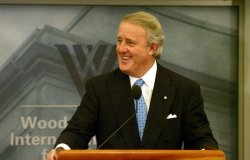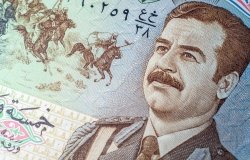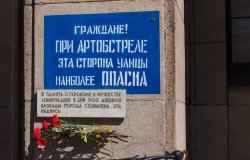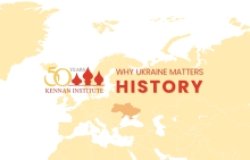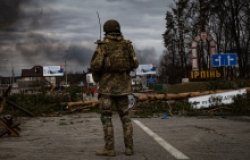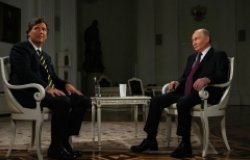Book Talk: <i>Crossing Mandelbaum Gate: Coming of Age Between the Arabs and Israelis, 1956-1978</i>
Kai Bird, Former Fellow, Woodrow Wilson Center and Contributing Editor, The Nation
Overview
In a discussion of his newly released memoir, Crossing Mandelbaum Gate: Coming of Age Between the Arabs and Israelis, 1956-1978, Kai Bird detailed stories of his experiences growing up in the Middle East and provided historical analysis of events in the region, most notably the Arab-Israeli conflict. Bird noted that a main intention in writing this memoir was to blend his personal accounts with "some serious history" of the Middle East in the time he grew up there.
The Middle East Program of the Woodrow Wilson Center hosted a book talk with Bird, former fellow at the Woodrow Wilson Center from 2001-2002 and contributing editor of The Nation, on April 29, 2010. Haleh Esfandiari, Director of the Woodrow Wilson Center's Middle East Program, moderated the event.
As the son of a U.S. Foreign Service officer, Bird lived in Jerusalem, Beirut, Saudi Arabia, and Cairo, among other locations throughout his childhood. While in Jerusalem, he had the rare privilege of crossing Mandelbaum Gate, a checkpoint between Israeli and Jordanian districts in Jerusalem. Bird was able to travel between East and West Jerusalem nearly every day because his family lived in Sheikh Jarrah, a mostly Arab sector of East Jerusalem, and Bird went to school in West Jerusalem. "In a literal sense, I could see both sides," Bird said of his experience growing up in the midst of the Arab-Israeli conflict. He noted that he was keenly aware of the conflict at a young age and, as such, had a fascination with maps.
Bird also indicated that his former neighborhood Sheikh Jarrah has since become "the fulcrum of the whole controversy and conflict" as hundreds of Arabs and Israelis gather together there every Friday to protest the building of Israeli settlements. Furthermore, Sheikh Jarrah "symbolizes the intractability of the conflict" for Bird and represents a significant obstacle to the peace settlement process.
After reviewing the historical context of the conflict, Bird offered a few stories from his early experiences in Sheikh Jarrah. Among these stories, he spoke of his best childhood friend whose father was a Muslim Palestinian and whose mother was a Jewish Israeli of German heritage to highlight how much of his memoir is about these difficult identity questions, particularly for those living with the Arab-Israeli conflict.
Bird's memoir is not only about the Arab-Israeli conflict, he noted, but also includes reflections on his experiences throughout the Middle East. One such experience featured his three years in Saudi Arabia during a "slow coup d'état" when the country missed an opportunity to modernize, largely as a result of the U.S. government position in maintaining a monarchy rather than allowing a move to a constitutional monarchy because of the possible threat to its oil concessions. The memoir also chronicles Bird's time studying Arabic at the American University of Beirut during the Black September hijackings of 1970.
Bird indicated that his Middle East memoir, in essence, tries to capture the entire American experience of the last 50 years or so. He concluded with a discussion of contemporary issues in the Middle East and the potential for hope in the region.
By Kendra Heideman, Middle East Program
Haleh Esfandiari, Middle East Program
Hosted By

Middle East Program
The Wilson Center’s Middle East Program serves as a crucial resource for the policymaking community and beyond, providing analyses and research that helps inform US foreign policymaking, stimulates public debate, and expands knowledge about issues in the wider Middle East and North Africa (MENA) region. Read more
Thank you for your interest in this event. Please send any feedback or questions to our Events staff.



